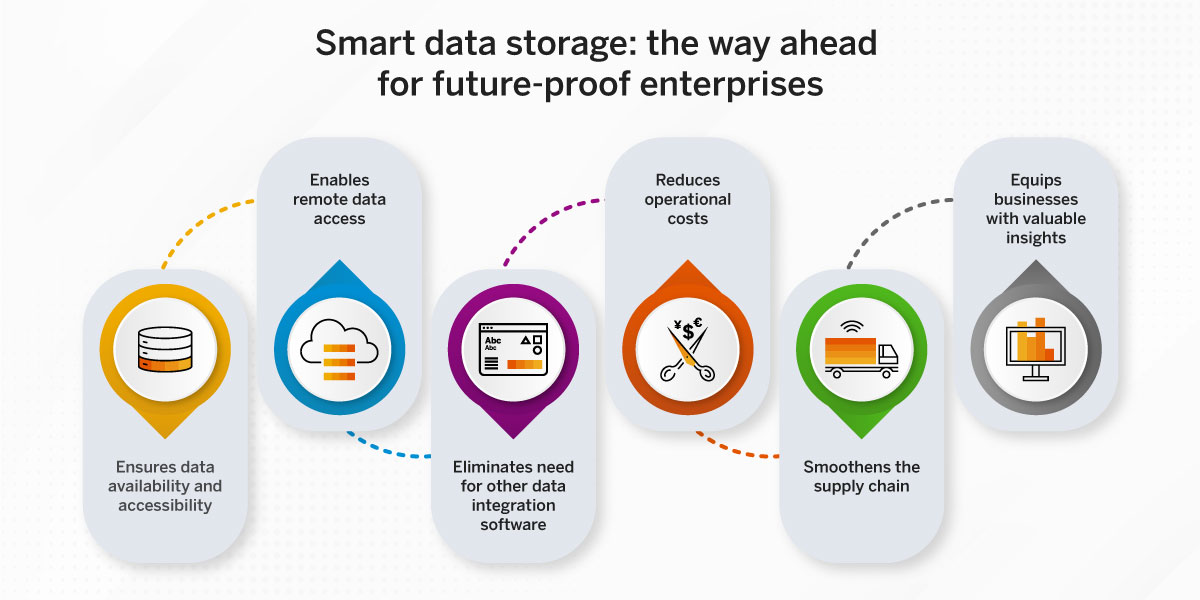Until 2020, start-ups and small to mid-scale enterprises were looking good in their business operations and executions, but the pandemic exposed how vulnerable they were to challenges. Most businesses only realised their unpreparedness for adverse situations when they found themselves in it.
It was not just lockdowns and limited consumer activity, but also a reluctance to adopt new supply procedures hoping that all this would quickly pass that put brakes on the economy. According to a survey conducted in seven Indian cities, a whopping 82% of businesses reported negative impact due to COVID-19, and 70% of them believed that it would take them a year to see pre-pandemic levels of demand. This indicates the need for an operational framework equipped with robust data consolidation and implementation systems that help enterprises deal with unforeseen challenges and improve resilience.
The technical know-how of SMEs before COVID-19
Before the pandemic, Artificial Intelligence (AI) and data integration had few takers. While most businesses had some software that helped improve operations, they were certainly not prepared for the drastic changes that manifested later.
Although SMEs were warming up to technologies designed to store, access and use data to improve business agility, decrease operational costs, and increase profits, it turned out they were far from fully prepared. The unexpected pandemic restrictions and rapidly growing demand for remote working created problems in getting easy data access, leaving most enterprises baffled.
And for many service and supply-based sectors, the situation presented an even bigger challenge as they had to figure out ways of ensuring a minimum contact supply chain. As subsequent lockdowns left many companies struggling, they had to find novel ways of getting back on the fast lane.
The response of small and mid-sized enterprises
With opportunities plunging, survival for SMEs in the post-pandemic world is nothing less than a challenge. The situation is pushing most enterprises to find innovative ways to hold ground.
While a quick look at industry performance indicates a slowdown, a deeper analysis reveals that some businesses not just showed resilience during these challenging times but also managed sizeable growth. It is because they learned how to realign their operations to the changing pandemic regulations.
In the last fiscal year, even during the slump, we witnessed many sectors struggling initially and then finding a way to cope. Like the restaurant industry, one of the largest service-based industries contributing around 3% to India’s GDP. It recorded a staggering 50-70% fall in income, but where thousands of restaurants initially shut down, a fair number managed to bounce back.

Many small eateries faced a hard time kicking off as work-from-home ate up most of their customer base. Even after restrictions were lifted, they faced uncertainties because of changed consumer behaviour, a general avoidance of public mixing and increased hygiene and safety concerns. But resilient players in the industry were quick to tailor their strategies and address challenges.
Apart from calibrating their operations, like ensuring a contactless eating experience and redesigning their dining spaces, the restaurant industry quickly acknowledged the power of data integration and used it smartly. Home deliveries and on-call takeaways, the services that started as a compulsion to survive, became a boon for them. Home delivery services, executed by collaborating with established delivery systems and phone calls for takeaway orders, helped eateries build their cloud-based capacities. The analytical implementation of this data pool helped these businesses identify potential sales areas and demand patterns to design a targeted marketing strategy.
This is just one of many examples where artificial intelligence and data integration paved the way for business survival. From pharma to grocery and clothing to manufacturing, there is hardly any sector in the country not exploring a data-based business framework.
Smart business planning and business agility
An innovative business plan, equipped with smart technologies that help consolidate data and contrive them to obtain consequent results, increases the scope for a resilient supply chain. Making decisions based on a unified data integration and interpretation system enables businesses to tap into the market potential amid changing consumer behaviour.
With digital data becoming key to understanding consumer behaviour and essential in decision making, businesses must choose a smart data storage system. Like in a cloud-based data storage system, all the digital data is stored in a logical pool. Cloud service providers ensure data availability and accessibility. It enables remote data access and also eliminates the requirement of other expensive data integration software.
Along with reducing operational costs and smoothening the supply chain, such advanced data storage systems also equip businesses with deep and valuable insights into consumer behaviour. These understandings help them plan future actions, figure out ways to cope with unforeseen challenges, generate new leads, and improve the overall operation. Moreover, analytical reports also bring efficiency in other company procedures like regulatory compliance, audits, tracking discrepancies etc.

Even before the pandemic, it was slowly becoming evident that digital transformation is crucial to remaining in business in the long run. Now, it is beyond clear that no company can risk ignoring business intelligence tools that empower them to make well-timed and well-informed decisions based on analytical assessments and forecasts.
Like in the restaurant industry we discussed before, entrepreneurs who managed to restructure their businesses according to data-driven solutions will have an edge in the future. Even if magically things go back to how they were, chances are those with limited or no data integration system will remain oblivious to changing demand patterns. Hence, they will struggle to breathe in a digitally transformed supply chain and in no way will be able to compete with next-gen customer services.
Digital integration is imperative for survival in a post-pandemic world
The uncertainty in present times, like changing regulations, further complicates the already intricate ties between international and domestic economies. In situations where ambiguity is the new standard, analytical decision-making is key for SMEs, and they need a robust digital integration system.
For this, most businesses are adopting modern data collection systems like the cloud. With such advanced technologies, we are heading towards building capabilities of processing data pools that, at present, possibly no IT infrastructure is equipped to handle. While this will help businesses make analytical decisions and achieve better results, it will also eventually wean enterprises that failed to change. Logically, with such massive digitisation of businesses, it is rather easy to fathom that the future holds promise for those who are creating a digitally viable trade framework now.
Importance of business management tools
In response to the pandemic, businesses are embracing technologies that help them improve execution and delivery. With enterprises changing their structural frameworks, the need for business management tools is now greater than ever. Enabling staff to work remotely, accessing data seamlessly and working on them in real-time, online planning, evaluating and monitoring, and most importantly, analytical decision-making – all require data-driven digital solutions.
With the changing nature of company engagements, both at the employee and consumer levels, business management tools increase flexibility and improve output across the delivery chain.
The way forward for Indian SMEs
In the post-pandemic world, building capacities and strengthening digital infrastructures are the two most important aspects for improving business outcomes. With the Government of India doing its bit to help cash-starved sectors and provide them with digital support, it is high time SMEs buckle up and tap every opportunity coming their way.
As global activities resume, with some changes to usual processes, the economy is sure to bounce back. However, those who realised the powers of the right data integration and interpretation system during the last couple of years will lead the way.
It is safe to say that while the pandemic tore many enterprises apart, it also opened the door to new opportunities and helped shape innovative business modules that we never thought we required.



